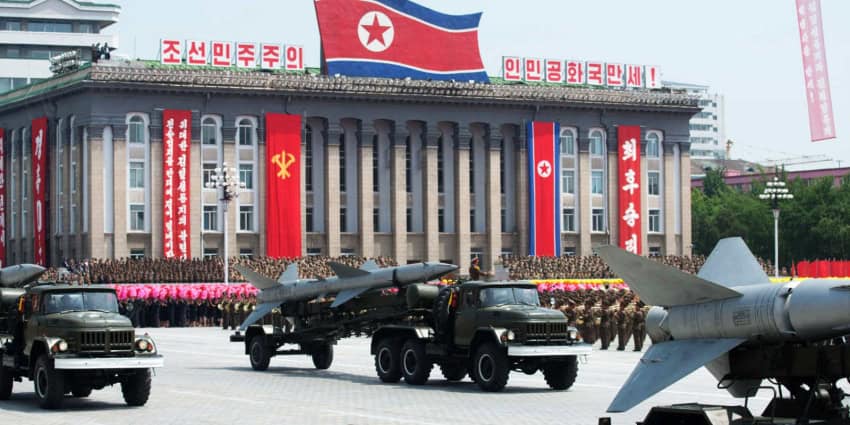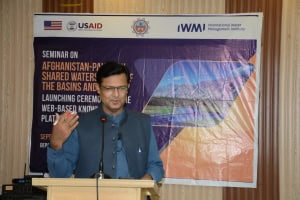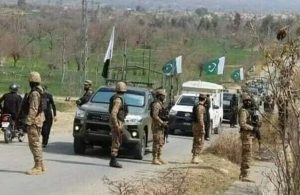North Korea’s recent powerful nuclear test, i.e detonating hydrogen bomb, has stirred debates within the world’s major powers’ Foreign Policy corners since it has widened the challenges and implications for the US, China and world at large in various ways.
UK, France, Russia and many other states declared North Korea’s recent nuclear test a sheer violation of United Nations Security Council. South Korea, Japan and EU have strongly condemned this act and made it clear that this behavior is not acceptable. North Korea came into lime light when it announced its withdrawal as signatory of Non-proliferation Treaty ( NPT).
In the same context, qualitative and quantitative assessment of North Korea nuclear capabilities needs urgent attention of the international community. According to nuclear expert, Prof. Siege Hecker it may have enough fuel for 18 bombs, with a capacity to make approximately 6 to 7 annually. Historically speaking, the United States and other major powers put pressure and negotiated with North Korea to end its nuclear, missile development programme and export of ballistic missile technology in the wake of withdrawal from the Non-proliferation Treaty (NPT) as its signatory. However, the issue was temporarily resolved with the help of the Agreed Framework and the Korean Peninsula Energy Development Organization (KEDO). The United States along with other states and North Korea signed the Agreed Framework. Under this agreement, Pyongyang committed to cease its plutonium weapons program and the US committed to provide two light-water reactors (LWRs) and normalization of political and economic relations with North Korea. The agreement became ineffective in 2002, when North Korea exercised its rights by withdrawing from the NPT. Strategic relations between North Korea and US went sour and remain the same so far.
In order to dissuade North Korea from pursuing a nuclear weapons program ‘Six-party Talks’ were initiated in August, 2003. The states involved in these talks were China, Japan, North Korea, Russia, South Korea, and the United States. In between moments of stalemate and optimism, those talks arrived at critical breakthrough in 2005. A significant role was played by China as a third party mediating between US and North Korea but, somehow mainstreaming of North Korea was missed.
The growing nuclear capability of North Korea has multi dimensional aspects. Firstly, it has serious implications for regional security. North Korea’s ever increasing nuclear related ventures may lead to tensions, enhancing possibility of arms race in the region and aggressive nuclear posture. Main regional stakeholders are South Korea and Japan which may take measures to protect their economic and security interests. Both Japan and South Korea have backing of the United States against North Korea in the form of extended nuclear deterrence commitment of the United States and both the states would expect the US to show effective support. After North Korea conducted its first nuclear test in 2006, China voted for United Nations sanctions against North Korea. Chinese-North Korea’s relations became soured due to China’s concerns about Japan’s re-militarization in response to North Korea’s military behavior. Hence, regional environment became destabilized because of nuclear tests in loop by North Korea.
Secondly, Pyongyang weakened the nuclear non-proliferation regime by being the only country ever to withdraw from the Nuclear Non-Proliferation Treaty and then testing nuclear weapons. It poses a great set back to the international norm against nuclear testing or efforts like Comprehensive Test Ban Treaty (CTBT). As Nuclear expert Daryl Kimball mentioned in his writing that North Korea is not a party to the treaty, it is the only state to have conducted nuclear test explosions since 1998. All nuclear-armed states have either signed the CTBT or, in the case of India and Pakistan, declared testing moratoriums. North Korea has shown lack of restraint and irresponsibility towards nuclear safety and security standards set by international nuclear regime.
Thirdly, nuclearization of North East Asia raises two points: one ; North Korea’s unwillingness to abide by the international regulations and law bindings. Second; international community including the US could not streamline North Korea at both diplomatic and strategic level. Now to deal with North Korea’s periodic nuclear detonations and concerns would be more challenging. The problem of nuclear proliferation is global, and any effective response must also be multilateral.
For mutual interest of both North Korea and International community these nuclear tests call for a balanced, diplomatic solution. Because this is growing as one of the world’s most complex nuclear safety, security and non-proliferation challenge.
Therefore, the charged political and strategic environment demands for a shift in world community dealings with North Korea for maintaining international peace and stability. By addressing the North Korea’s security concerns, its energy shortage, and its economic woes may lead to some agreeable solution.














